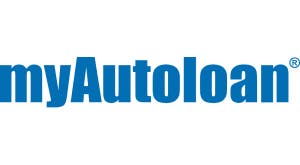USED
myAutoLoan: Best for fair credit borrowers

4.0
Bankrate Score = 4.0/5
Bankrate scores are objectively determined by our editorial team. Our scoring formula weighs several factors consumers should consider when choosing financial products and services.
APR from
The annual percentage (APR) includes your interest rate, plus any loan fees. It reflects the total cost of borrowing.
6.74%
Loan term
2-7 yrs
Loan amount
Starting at $8,000
Min credit score
600
See rates
Apply on partner site
This lender is registered in states where it does business and was vetted by the Bankrate Editorial team.
Expert Take:
Borrowing from a loan aggregator is a surefire way to get the best way. One recognized in the space, myAutoLoan, will field offers following a single application so you can easily compare your options.
Known qualification requirements
- Be at least 18 years old
- Have a FICO credit score of at least 600
- Have gross annual earnings of at least $21,600 for a non-refinancing purchase
- Have gross annual earnings of at least $18,000 for auto refinancing
- Choose a vehicle no more than 10 years old with under 125,000 miles
Fees
- None
Pros
- Flexible acceptance criteria
- Fast funding
- Transparent rates
Cons
- Limited state availability
- Online-only customer support
- High minimum loan amount
See partner disclosures: https://www.myautoloan.com/disclosure-section.html












